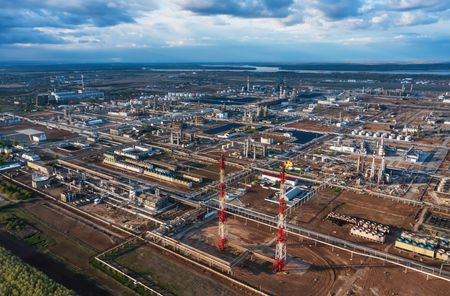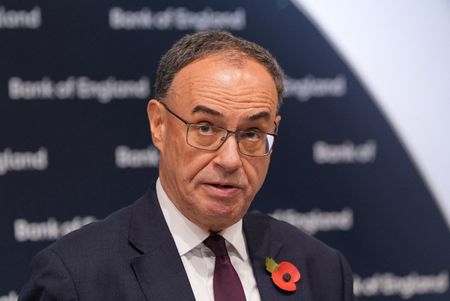By Lawrence White and Simon Jessop
LONDON/SAO PAULO (Reuters) -HSBC on Thursday issued a set of new, softer near-term climate targets for sectors such as oil and gas in response to the slow pace of change in the real economy.
The end-decade targets follow a review announced earlier this year as the British bank dropped a goal of reaching net-zero carbon emissions across its own operations by 2030.
HSBC still aims for operations funded by its loan book to produce net-zero emissions by 2050. It and other banks that have set similar climate targets say they aim to help clients finance transitions to lower-emission business models.
HSBC had originally based its targets on the International Energy Agency’s 2021 analysis of what it would take to reach the world’s goal of limiting global warming by 1.5 degrees Celsius by mid-century, work which has since been updated to reflect the slower than expected progress.
HSBC’s updated policy announced on Thursday now sets its targets for financed emissions for high-emitting sectors by 2030 as a range, rather than a single metric.
The lower bound of each range is aligned with the IEA’s net zero emissions 2024 scenario, consistent with a global warming pathway of 1.5 degrees, while the upper bound aligns with a 1.7 degrees pathway.
For the bank’s oil and gas clients, for example, the bank said it aims to see a reduction in financed emissions of between 14% and 30% by 2030 from a 2019 baseline, consistent with the IEA’s two scenarios.
The update on its transition plans from Europe’s biggest bank shows how lenders are watering down some of their own commitments to help clients reduce emissions, amid wider setbacks in the fight against climate change.
The bank’s announcement also comes as world leaders gather in Brazil this week for the UN COP30 climate talks, and as EU climate ministers agreed a softened target to cut emissions 90% by 2040, from 1990 levels.
HSBC said its new policy reflects commercial realities, and that the bank is still on track to meet a target of providing or facilitating $750 billion – $1 trillion in sustainable finance by 2030.
(Reporting by Lawrence White and Simon JessopEditing by Peter Graff)










